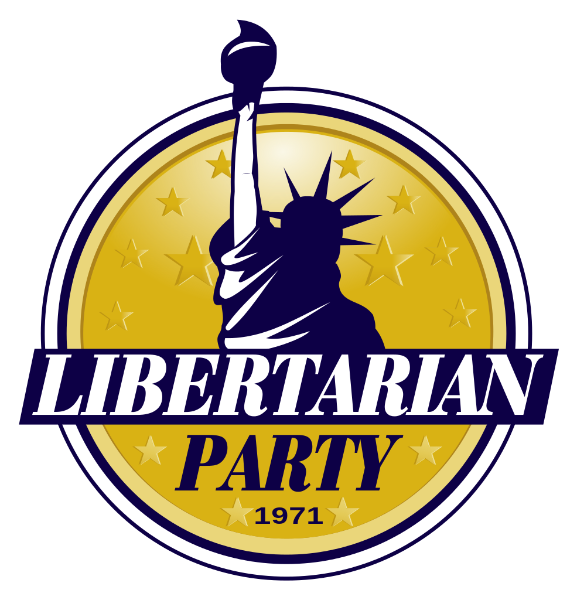My Journey to Voluntaryism

I always loved to read. Maybe that was why I loved school, in spite of the regimentation, which I mostly ignored. My life was in my head, not in the stupid rules I had to follow.
My father was a Southern Baptist minister, very conservative and very Republican. I adored him, so it was very painful to realize at the age of fifteen that I couldn't believe what he preached, no matter how hard I tried. However, I didn't want to disappoint him, so I went off to a Southern Baptist university right after my seventeenth birthday.
Probably nobody was less prepared for college life than I was, but I discovered Ayn Rand that year, 1966. Life started to make sense to me when I saw the fundamental conflict between individualism and collectivism -- between responsibility and dependence. Although my life took some strange turns in the next few years, I kept the basic philosophy of individualism that I learned from Ayn Rand, which included a profound contempt for politics.

After escaping from an unhappy marriage, I indulged my love of reading by going to a state university and taking a double major in English and History. I was particularly interested in how literature affected history and vice versa. I was shocked by how different the history I learned in college was from the history I had studied in grade school, but even the texts in college reflected the disturbingly collectivist philosophy of the writers. In retrospect, I realize that, in spite of how much I was reading, none of it challenged the legitimacy of the state.
I graduated Phi Beta Kappa and was accepted into the Ph.D. program in History at the University of California at Berkeley, but I was unsure if I wanted a life in academia, so I took a summer job at a law firm to see if law school might suit me more. I was disgusted by the legal profession and started to think about making my living in the real world of business.
I spent many years trying to find my place in the world through different careers and different relationships. Nothing seemed to suit me long term, but I learned a lot.
One of my most memorable lessons came from my job as an office equipment salesperson. I spent most of my time showing private businesses how my equipment could increase their productivity. I discovered that trying to sell to government agencies was a waste of time because bureaucrats didn't want to increase productivity and possibly lose employees. Then one day I got a call that a District Court wanted to buy some electronic typewriters from me because the manufacturer of our newest line had a government contract. Easiest sale ever because there was no competition and they already knew they wanted the most expensive models we had. The court had a budget for equipment that they had to spend or lose, so they spent it on high-end electronic typewriters that decreased their productivity because they were machines designed for more complicated tasks than filling in forms. All I had to do was deliver the equipment and teach the secretaries how to get around all the features that made filling out forms difficult. I liked the commission, but I couldn't help thinking about all the tax dollars the court wasted. That was when I realized that all government agencies squander tax dollars the same way, propping up the power of the bureaucrats who make the buying decisions. It's all about the perverse incentives.

Perverse incentives had a lot to do with the failure of my second marriage. My husband was a very kind person with little ambition but a history of taking responsibility for his life in difficult circumstances. He told me how his union job created the incentive for everyone to put forth minimal effort and how wrong he thought that was. Then he hurt his back and got into the worker's comp system, which gives doctors and patients incentives to continue treatments after they are no longer needed. Maybe those perverse incentives just brought out weaknesses in his character that were always there, but I can't help blaming that government program for the change in his personality. I saw the growth of an entitlement mentality and dependence happen before my eyes until I could no longer live with the man he had become.
Another job that taught me how government interferes with free enterprise business was the year I spent as a business broker. It started with my having to obtain real estate licenses in two states just to be allowed to do the job. I had always heard that the licenses required months of classes and most people still failed the exam on the first try, and the challenge exam was even harder. Fortunately, I didn't believe it, so I spent about a week on my own studying the guides and passed both challenge exams with no problem. The ridiculous thing was that passing those exams in no way ensured that I would be able to sell real estate (or negotiate business leases) honestly and responsibly. It just meant I knew a lot of mostly useless rules.
The real lessons came from working with owners who were trying to sell their small businesses. Listing the firm for sale meant learning everything about the business, including how the owner did or did not manage to get around all the government regulations that interfered with his ability to please enough customers to make a living. Intrusive laws didn't account for all the owners who were failing, but the ones who were trying most scrupulously to obey all the rules seemed to be the ones who did worst. The owners who did best were those who found ways to please customers while keeping enough money for themselves to make it all worthwhile. That mainly meant figuring out which regulations to follow and which to ignore. Unlike big businesses that can lobby government and use it against would-be competitors, small businesses can only benefit from the government by finding ways around the laws their competitors follow. They don't need any government to tell them that they have to treat their customers and employees well to prosper.
As a manager at a large, long-established corporation, I learned even more about the difference between large and small business and how government affects business. My little department with twelve employees was a cost center rather than a profit center, so my job success depended on achieving productivity goals at the lowest cost possible. Government regulations created the biggest costs, and happy employees created the most significant productivity gains. Keeping employees happy is not about money but respect and freedom and challenge. The problem with size is not that it is inherently evil but that it can dilute responsibility. Just a few politically-minded business people at the top can create a corporate culture rife with political maneuvering and not enough focus on business goals. The more politics gain, the more business suffers.
After a few more careers that got boring as soon as I accomplished my initial goals, I finally discovered a career that made me happy and that never got boring -- editing feature films -- a different kind of storytelling than I had once imagined as a child.

At about the same time, I got interested in the Libertarian Party. The man who recruited me insisted that the LP was not "politics as usual" but a real chance to restore freedom to America by reining in government power. I soon discovered how wrong he was when I attended the 2000 California state convention. It was just as disgusting as any other political game, in spite of the sincerity of most of the participants. I saw that the problem wasn't the people involved but the perverse incentives of politicians, just like the perverse incentives of bureaucrats, no matter how well-meaning.
However, I did get a lot out of my brief time in the LP, especially from a few speeches by libertarian anarchists, which seems rather ironic. They opened my mind to the idea that government wasn't necessary at all. That started me on a reading program that emphasized writers like Frederick Bastiat, Lysander Spooner, Albert Jay Nock, Leonard E. Read, and Murray Rothbard. I found more than I would ever have time to read on websites like Lew Rockwell, Mises Institute, and Strike the Root.
It took me a few years of intensive reading between films before I fully understood the beauty and simplicity of market anarchism/anarcho-capitalism. I spent a lot of time defending the terms before I heard the word voluntaryism, which made the primary principle clear. What I had always believed on some level was that all interactions between people should be voluntary and peaceful. The vision of a society based on that idea was what I had always sought.

I edited two feature films with producer Sky Conway, and we discovered that we shared the same beliefs. We organized Libertopia, an annual festival to bring together people who share that vision of peace, prosperity, and a voluntary society. Although health issues forced me to give up both film editing and event organization, I still want to do what I can to spread the ideas of voluntaryism.
It's both funny and ironic how often people are pushed towards anarchism just by being involved with "government." This story is a fine example of a diverse life and career that just kept giving accidental reminders of how counter-productive and stupid "government" is. Thanks for sharing it!
Is virtue a thing remote? I wish to be virtuous, and lo! Virtue is at hand.
Has a teacher ever changed your life? How so?
Joyce! Thanks for posting! Ah, how I've missed Libertopia!!! Thank you also for your work on that in the past.
Is Libertopia ever coming back? :0
Kindest regards....
I'm not sure. I'm planning to talk to Sky next week about Libertopia.
Very insightful, thank you Joyce! Very much appreciate that you've documented your journey. I've a feeling there are more stories, and perhaps more to these stories, for you to share. Years back, when you'd used the word "government", I'd argued a preference for the word "state" (as in l'état). I do the same here, after reading your post.
You are right that it is the state that is the enemy. There is a possibility of competing governments, or even government by contract, but I didn't see that distinction between state and government until you pointed it out. I think most people still see the two words as synonymous, which is why I use "government" to avoid confusion with the more narrow definition of "state" as a subdivision of nation.
Yes, the word "state" has more than one meaning, and that is a valid reason for avoiding it. True government will be through voluntary, free market transactions, not through any coercive state mechanism.